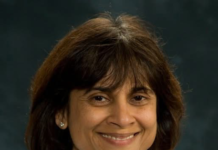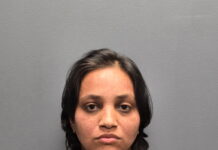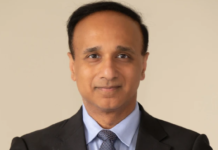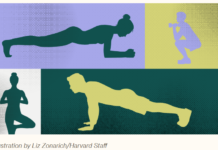BOSTON—If the world-renowned heart and cardiovascular expert Dr. Mandeep Mehra, MD, MSc, FRCP (London) were not a heart transplant specialist, he would have easily become a professor of philosophy.
“If I were to choose a new career, I might consider being a professor in a broader sense—possibly in philosophy,” says Dr. Mehra. “I’ve always been fascinated by the human condition, the nature of knowledge, and the narratives that shape our experiences as well as the existential spirit of life.”
 On Nov. 15, 2024, Dr. Mehra will be honored with the “Healthcare Pioneer Award” at the New England Choice Awards Gala at the Burlington Marriott Hotel in Burlington, MA. The event will be attended by over 400 business and community leaders, academics, philanthropists and medical and technology professionals. To buy a ticket for the gala, please click here.
On Nov. 15, 2024, Dr. Mehra will be honored with the “Healthcare Pioneer Award” at the New England Choice Awards Gala at the Burlington Marriott Hotel in Burlington, MA. The event will be attended by over 400 business and community leaders, academics, philanthropists and medical and technology professionals. To buy a ticket for the gala, please click here.
Dr. Mehra holds the William Harvey Distinguished Chair in Advanced Cardiovascular Medicine, serves as a Professor of Medicine at Harvard Medical School, and is the Executive Director of the Center for Advanced Heart Disease at Brigham and Women’s Hospital and Harvard Medical School in Boston. He was the founding Medical Director of the Heart and Vascular Center at Brigham and Women’s Hospital from 2013 to 2019 and served as Editor-in-Chief of The Journal of Heart and Lung Transplantation from 2010 to 2020, during which time the journal rose to the #1 ranking in its field.
Dr. Mehra is the only individual to have served as President of both the International Society of Heart and Lung Transplantation (ISHLT) in 2008 and the Heart Failure Society of America (HFSA), the two leading societies in advanced heart disease. He has authored over 500 scholarly papers, with a focus on advanced heart failure. Among his notable contributions, he discovered the obesity paradox in heart failure, described the natural history of cardiac allograft vasculopathy post-transplantation, established international guidelines for the selection and care of transplant patients, defined the role of new immunosuppressive therapies to improve transplant outcomes, and introduced genomic-based biomarkers for evaluating cardiac allograft rejection.

In recent years, Dr. Mehra’s research has focused on the development of novel left ventricular assist devices (“artificial heart pumps”) designed to reduce adverse effects and expand their use in a broader patient population. This work, published in the New England Journal of Medicine, has led to the introduction of novel therapies for advanced heart failure, significantly impacting clinical practice worldwide.
Dr. Mehra also holds a certificate in Executive Leadership from Harvard Business School and earned a Master of Science in Health Economics and Management from the London School of Economics in 2018 as a “Braunwald Scholar”. In 2024, he was honored with the Lifetime Achievement Award from the Heart Failure Society of America.
Here is a Q/A with Dr. Mehra:
INDIA New England News: Who has influenced you most in your personal and professional life?
Dr. Mandeep Mehra: In my personal life, my greatest influence has been my family. Their unwavering support and understanding allowed me to pursue my passion for medicine despite the demands it placed on time and energy. Professionally, I’ve been deeply influenced by the mentors who guided me in my scientific journey—particularly Drs. Eugene Braunwald and Marc Pfeffer, whose dedication to patient care and tireless pursuit of research excellence has continued to hone my approach to both clinical practice and academic inquiry. Their ability to balance compassion and practicality with scientific rigor has been a model I’ve strived to emulate.
On a more general note, I have been inspired by Mahatma Gandhi’s principles, and taken his principles of social justice and selfless service in approach to patient care—focusing on compassion, empathy and healthcare equity.
INE: Your three favorite books?
MM: 1. “The Man Who Mistook His Wife for a Hat by Oliver Sacks”: Dr. Sacks’ vivid stories remind us that every patient is unique, with a story to tell beyond their diagnosis.
- “A Brief History of Time” by Stephen Hawking – Although focused on physics, it captures the spirit of scientific exploration and the drive to understand the universe.
- “The Innovators” by Walter Isaacson – Chronicles the history of the digital revolution, highlighting how teamwork, innovation, and collaboration were essential to scientific and technological breakthroughs.
These books offer valuable lessons in leadership, discovery, and the perseverance required to achieve great things in science and medicine.
INE: Your two favorite quotes or sayings?
MM: 1. “Do not go where the path may lead, go instead where there is no path and leave a trail.” — Ralph Waldo Emerson. I’ve tried to embody this sentiment in my work, striving for innovation in research and seeking new ways to improve patient outcomes.
- “Someone’s sitting in the shade today because others planted a tree a long time ago.” – Warren Buffet. This speaks to the value of long-term planning and investment in systems and people. In healthcare, initiatives that prioritize public health, research, or infrastructure may not yield immediate results but are essential for future impact.
INE: Your hobby?
MM: I enjoy playing chess. This game exemplifies strategic thinking, problem solving, risk assessment, and resilience. These qualities foster a disciplined, thoughtful approach to challenges in both life and medicine, aligning well with the values of careful decision-making and perseverance.
INE: Your passion?
MM: My passion is improving patient care through medical education and research. I’ve always believed that the goal of being an academic cardiologist is to translate research into practice, and to train future generations of doctors to be both compassionate caregivers and innovative scientists. It’s deeply fulfilling to see research directly impact patients’ lives and to watch students grow into exceptional clinicians.
INE: Why do you do what you do?
MM: I do what I do because of a commitment to alleviating human suffering. Cardiovascular disease affects millions worldwide, and every small advancement—whether in the clinic, the lab, or the classroom—brings us closer to improving and saving lives. The combination of direct patient impact, the challenge of complex problem-solving, and the potential to leave a legacy through education and research drives me every day.
INE: Do you support any non-profit organizations and why?
MM: Yes, I support several non-profits, including mended hearts, which focuses on patient empowerment. Another charity is the St Judes Childrens Research Hospital which believes that no child anywhere in the world should die of cancer and provides provide cutting-edge treatments at no cost to families — so they can focus on helping their child live.
INE: If you get a second chance, what will you choose as your new career and why?
MM: If I were to choose a new career, I might consider being a professor in a broader sense—possibly in philosophy. I’ve always been fascinated by the human condition, the nature of knowledge, and the narratives that shape our experiences as well as the existential spirit of life. Teaching these subjects would allow me to explore these areas more deeply, while still having a profound influence on others, much like my role in medicine.














